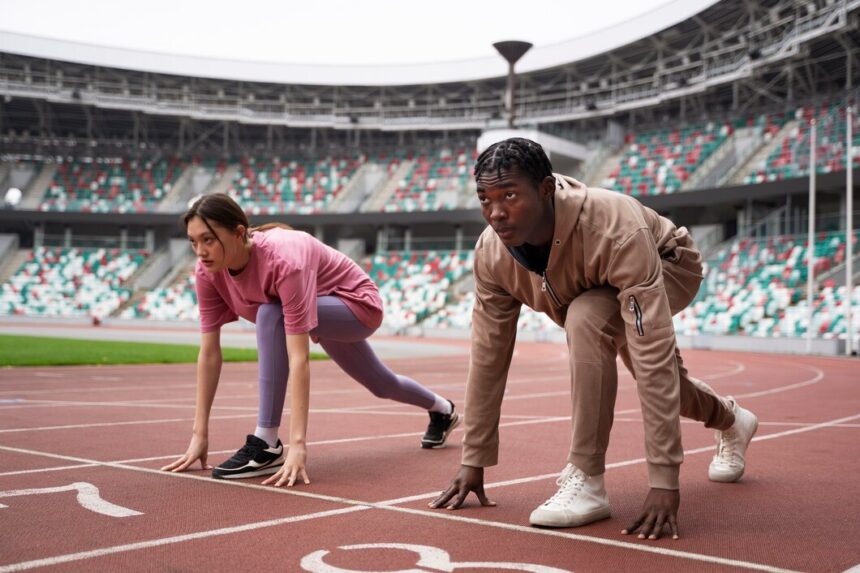The Olympic Games – a global spectacle that ignites national pride and showcases the pinnacle of athletic achievement. But beyond the medals and records lies a fascinating story about the evolution of modern sportsmanship. From the ruthless pursuit of victory in ancient Greece to the spirit of camaraderie we see today, the Olympics have been a crucible for shaping how athletes compete.
The Ancient Ideal: Arete and the Glory of Victory
The first Olympic Games, held in 776 BC, were a far cry from the modern extravaganza. Back then, the focus was on arete – the Greek ideal of excellence in all aspects of life, including physical prowess. Winning was paramount, and competition was fierce. There were no weight classes, no anti-doping regulations, and victory, at all costs, was the ultimate glory. Imagine a boxer facing an opponent twice his size – that was the reality of early Olympic competition.
The Dark Ages and the Reemergence of the Games
Following the demise of the Roman Empire, the Olympic Games fell into obscurity for over a millennium. When Baron Pierre de Coubertin revived the Games in 1896, his vision went beyond athletic prowess. He envisioned the Olympics as a platform to foster international peace and understanding through sportsmanship. This marked the beginning of a shift towards modern sportsmanship, which emphasizes respecting your opponents, importance of fair play, and celebrating the spirit of competition itself.
The Evolution of Modern Sportsmanship
The early years of the modern Olympics weren’t without their controversies. Nationalistic fervor often overshadowed sportsmanship, leading to protests and boycotts. However, the Games gradually became a stage for iconic displays of modern sportsmanship:
1936 Berlin Olympics: German runner Luz Long famously helped his African-American rival Jesse Owens qualify for the finals, showcasing sportsmanship over national pride.
1960 Rome Olympics: Ethiopian runner Abebe Bikila, after winning the marathon barefoot, waited at the finish line to offer his jacket to a struggling competitor. This act of kindness epitomized the spirit of the Games.
2012 London Olympics: French fencer Gauthier Grumier deliberately received a penalty to ensure a fair match with his opponent who had suffered a malfunctioning equipment.
Statistics show a dramatic decline in protests and boycotts at the Olympics since the 1970s, suggesting a growing emphasis on modern sportsmanship. The Games are now a platform for athletes to not only compete but also to bridge cultural divides and promote global unity.
Modern Challenges: Doping and Technological Advancements
Despite significant progress, modern sportsmanship still faces challenges. Doping scandals continue to tarnish the spirit of the Games, highlighting the need for stricter regulations and a culture of clean competition. Additionally, technological advancements in sports equipment and training methods raise questions about equal opportunity.
The Future of Modern Sportsmanship
The Olympic Games remain a powerful symbol of modern sportsmanship. While challenges persist, the Games offer an opportunity to showcase the values of respect, fair play, and celebrating human potential. As the Olympics continue to evolve, it’s crucial to find a balance between technological advancements and preserving the core principles of sportsmanship. The Games must be a platform not just for breaking records, but for inspiring a generation of athletes who embody the true spirit of competition.
The Olympic torch, a symbol of hope and unity, continues its journey. Let’s hope the future of the Games sees modern sportsmanship burning ever brighter, illuminating the path for a more unified and inspiring global competition.







